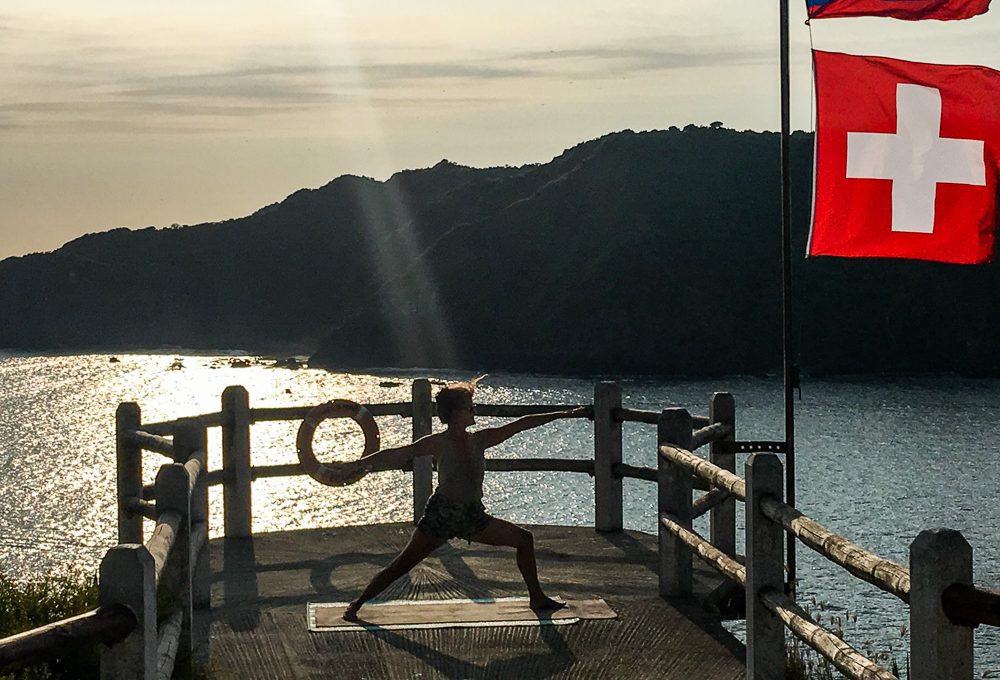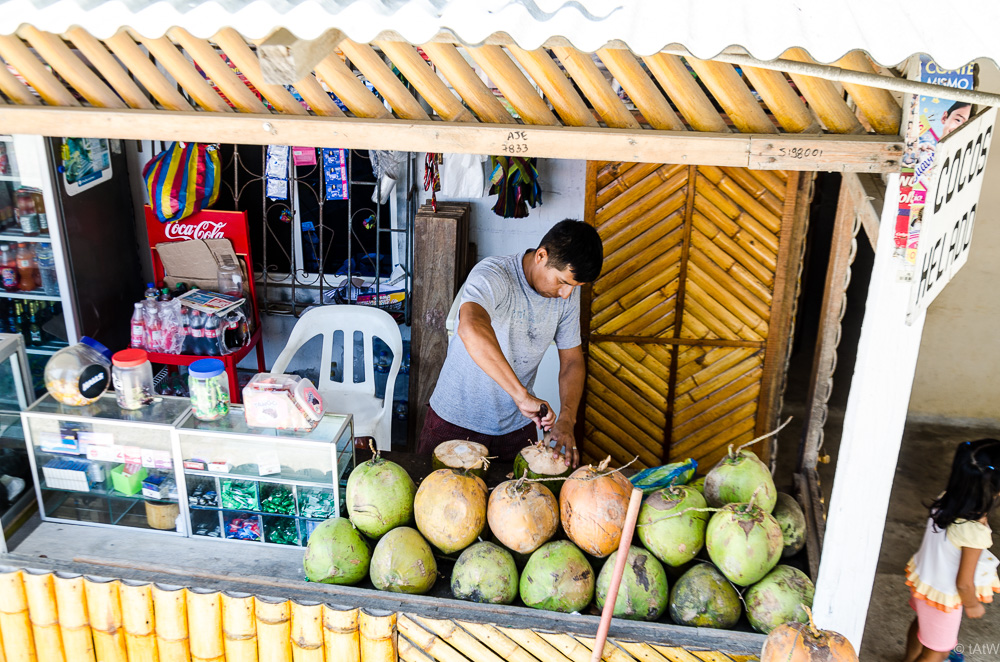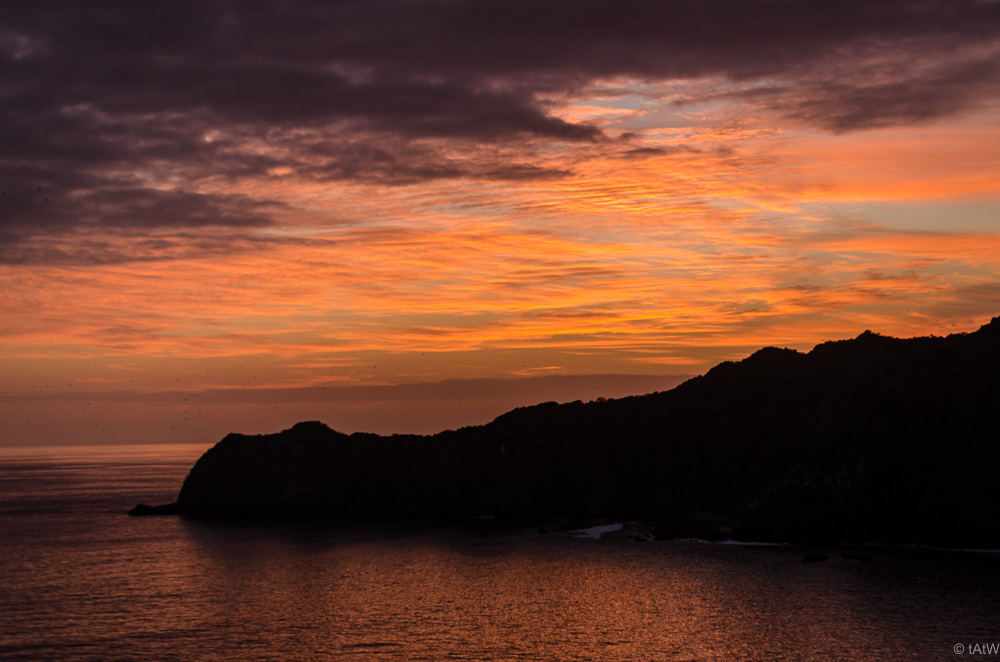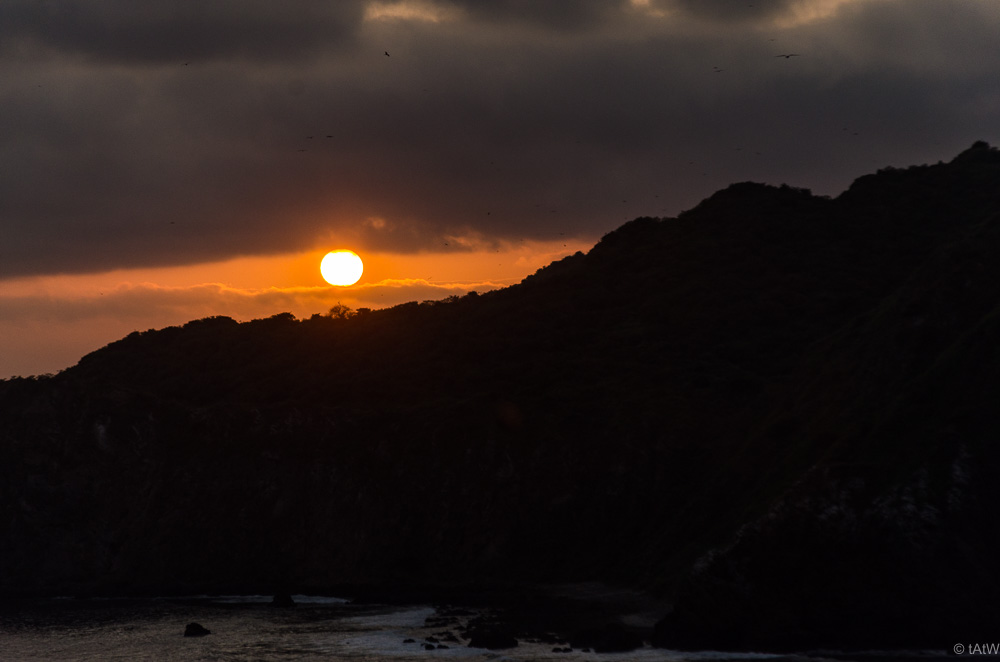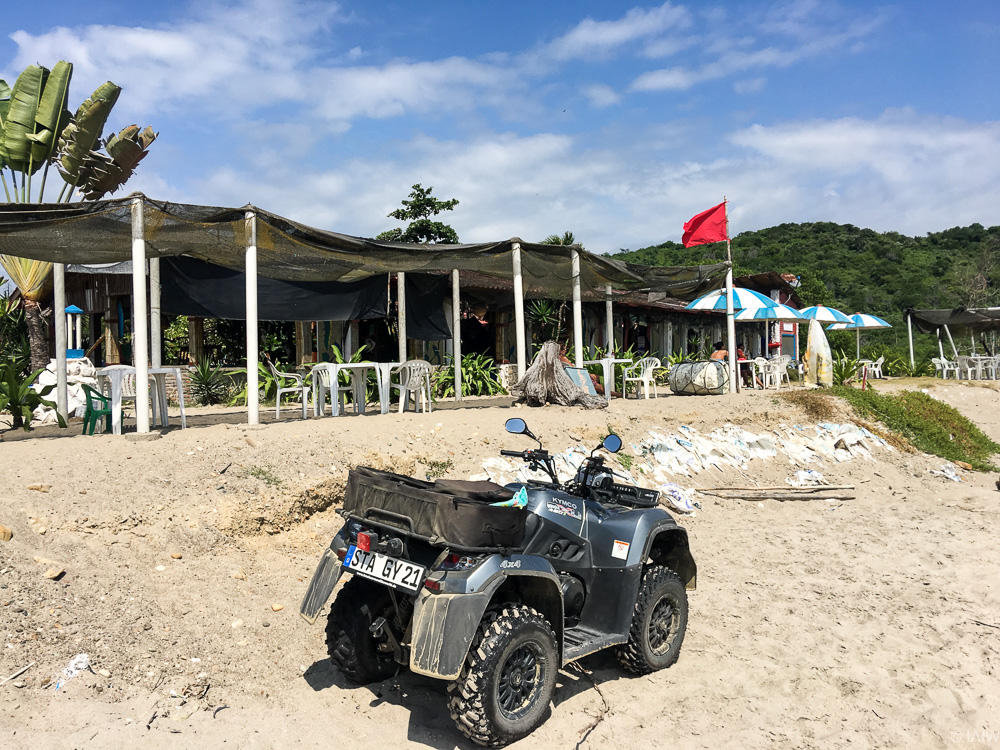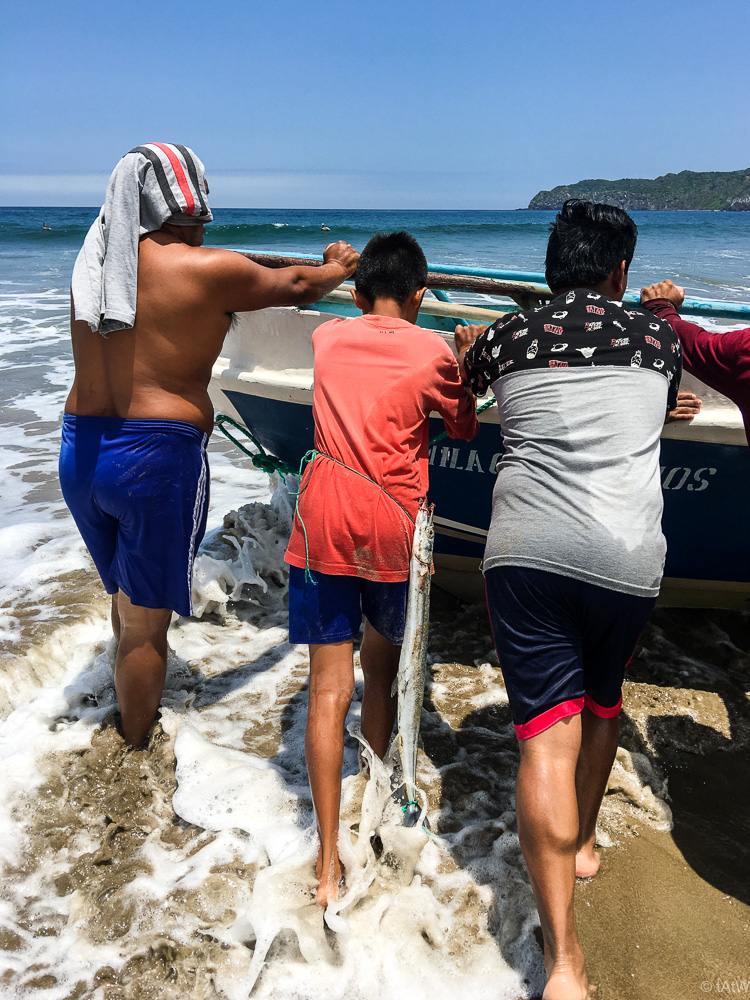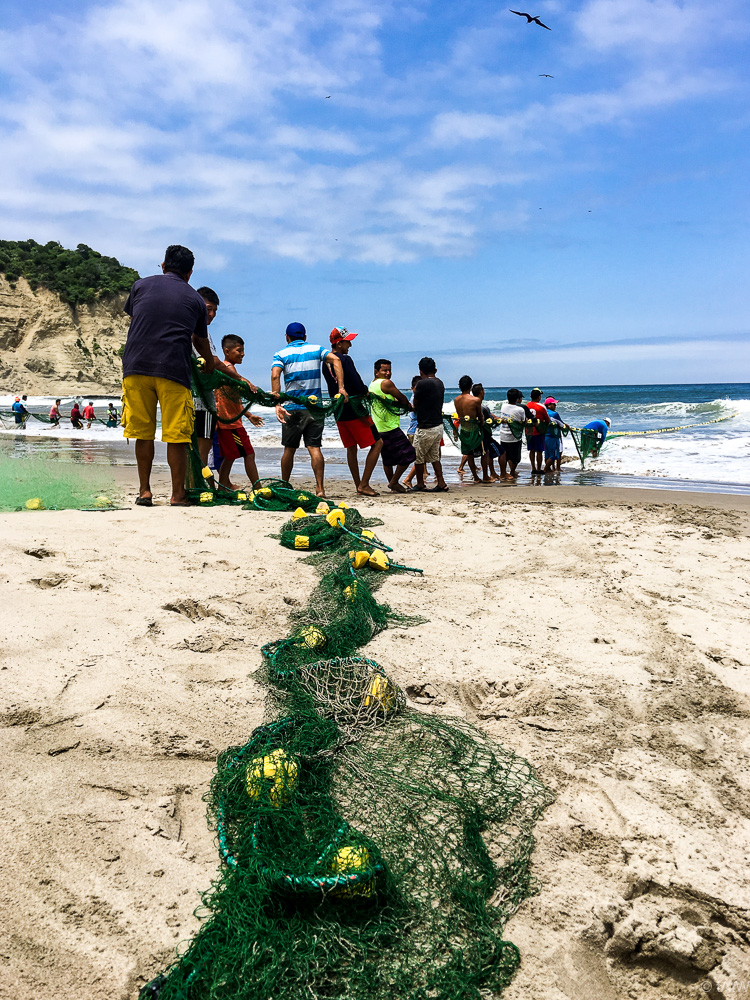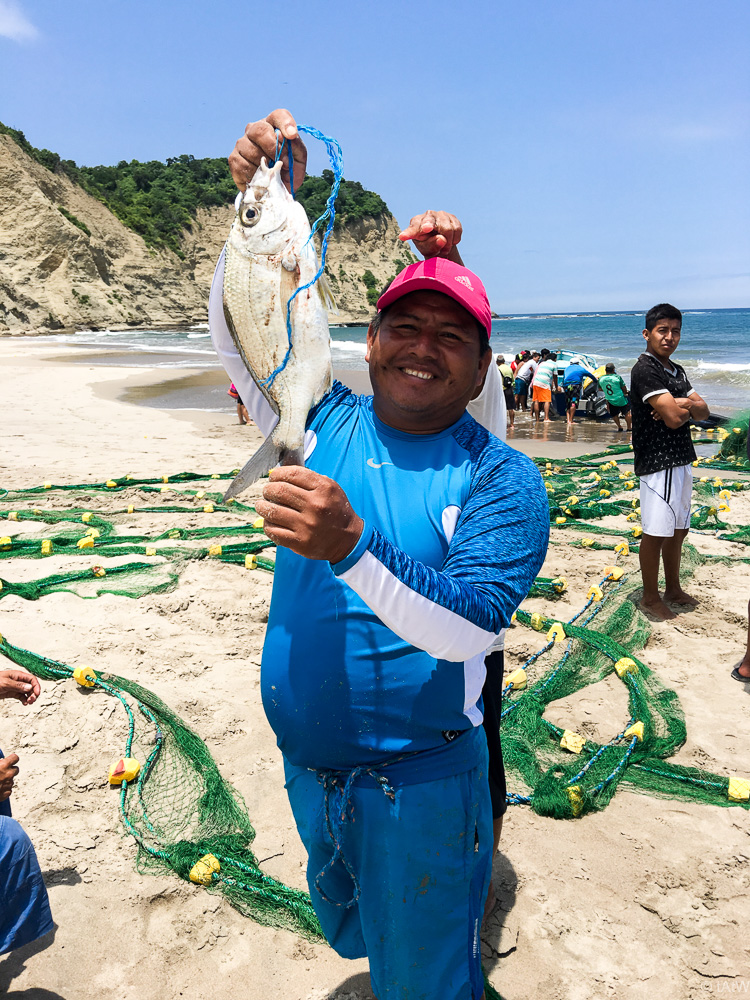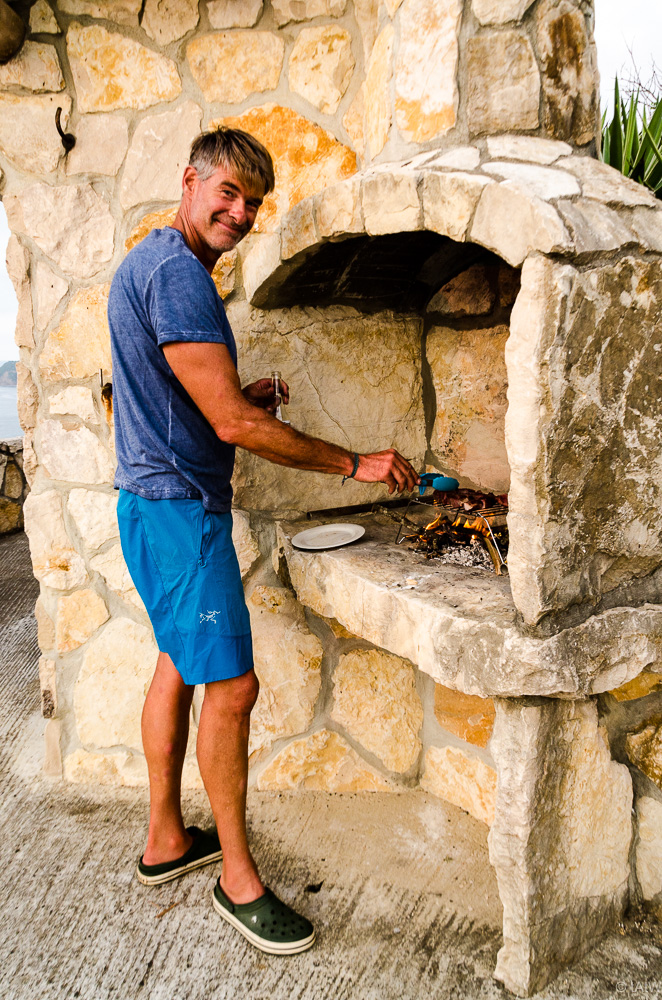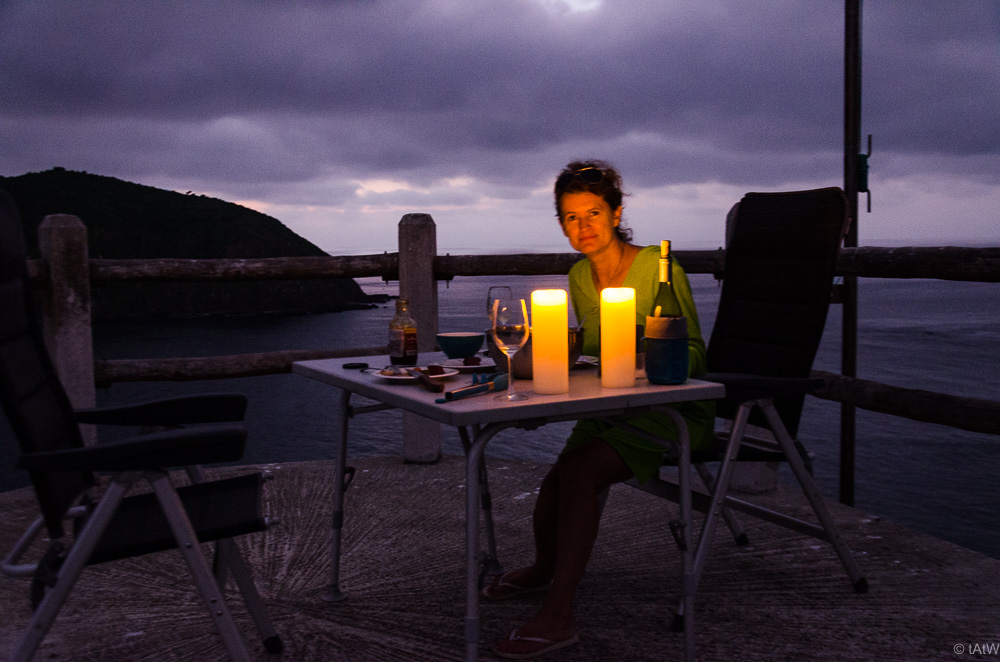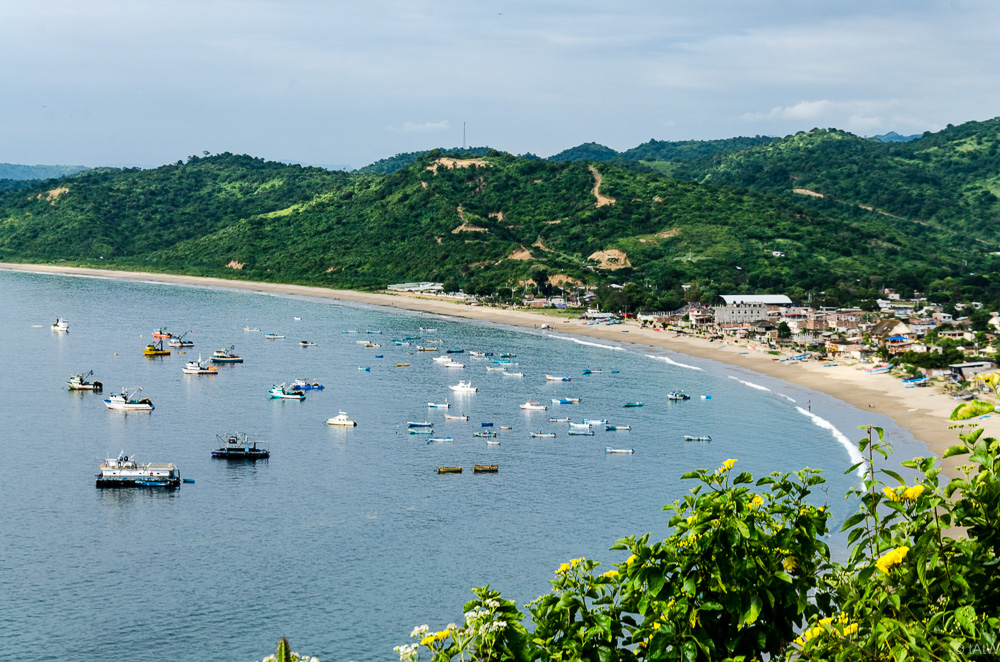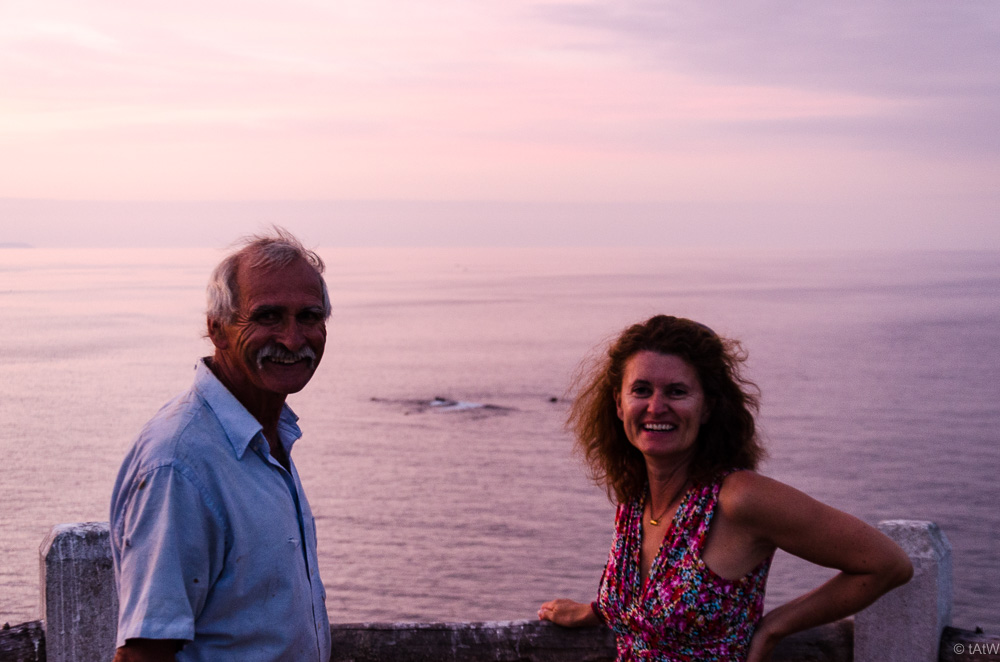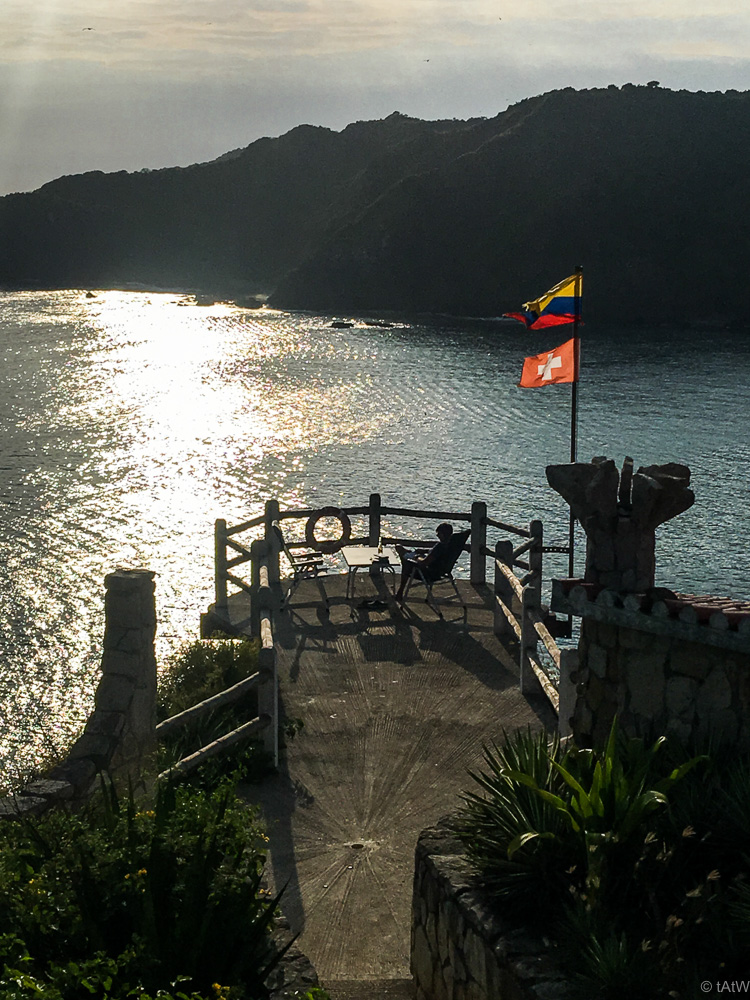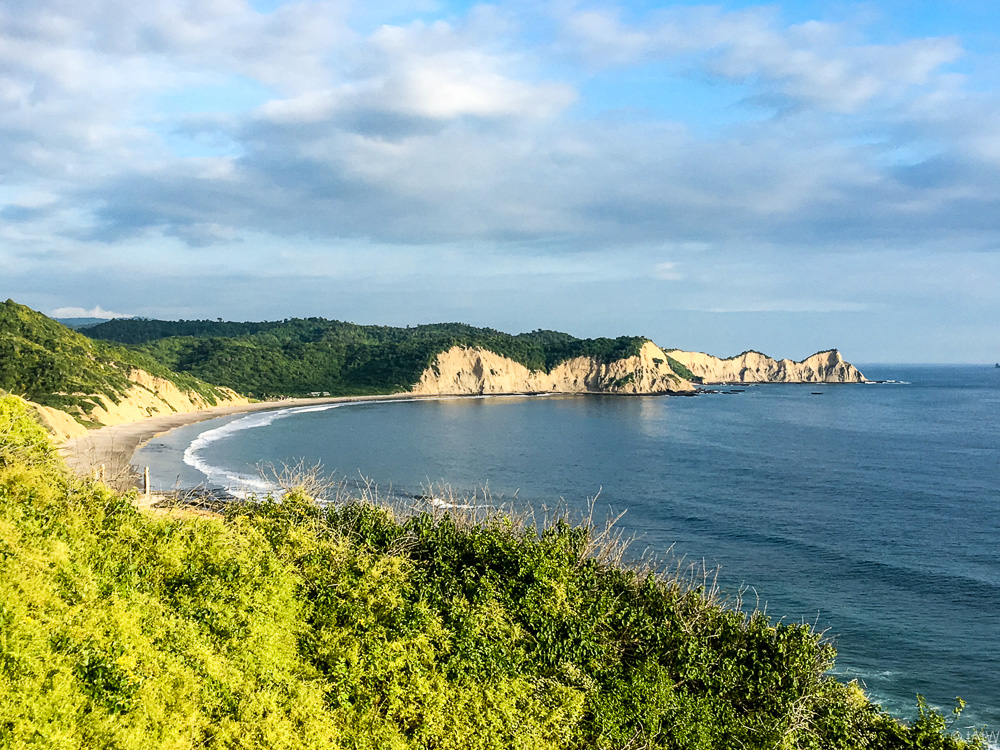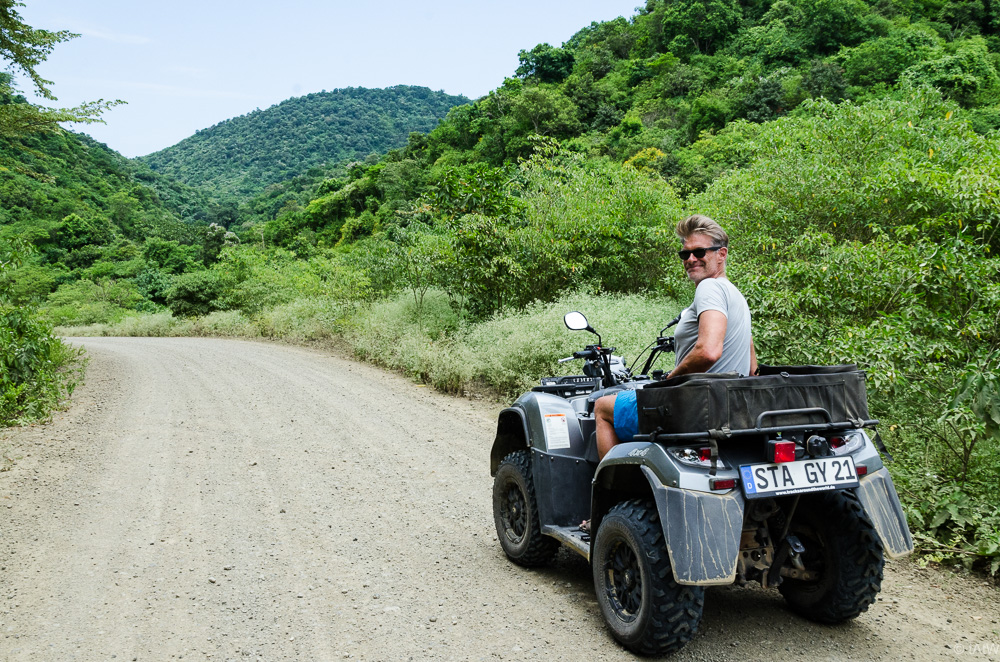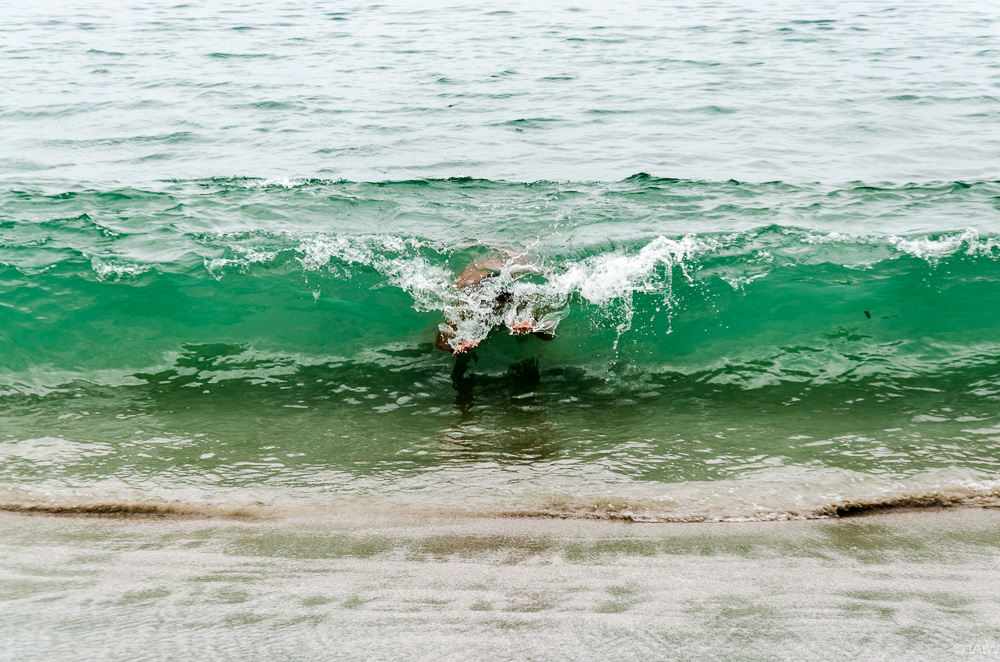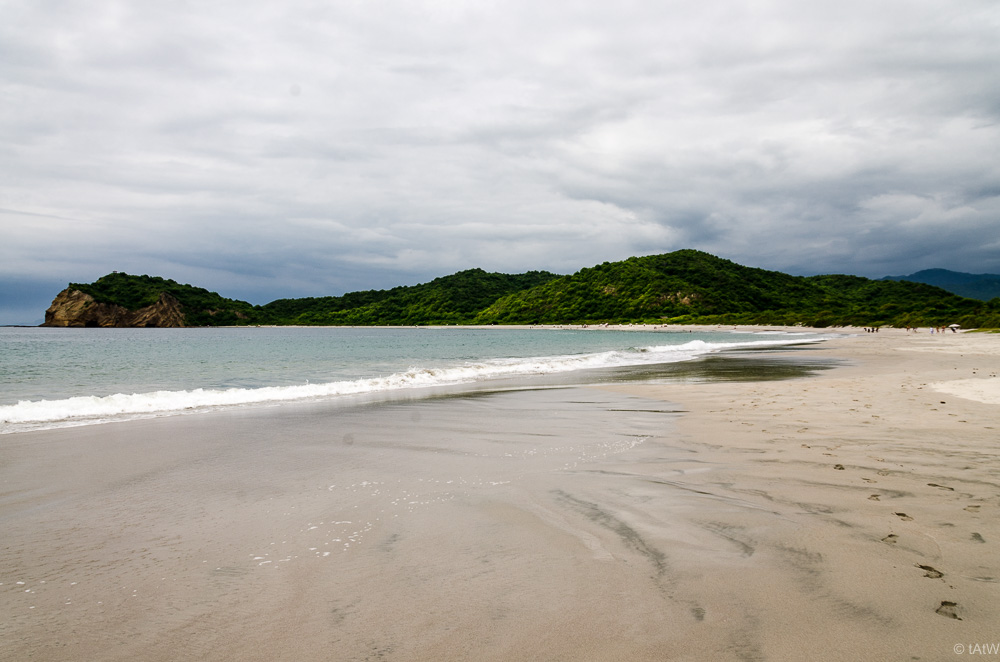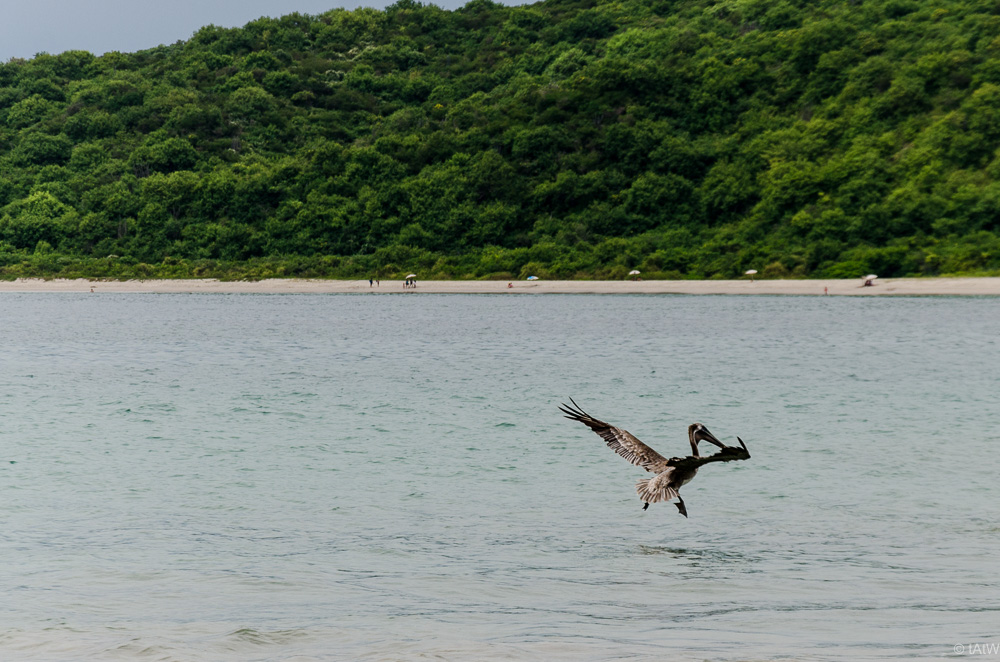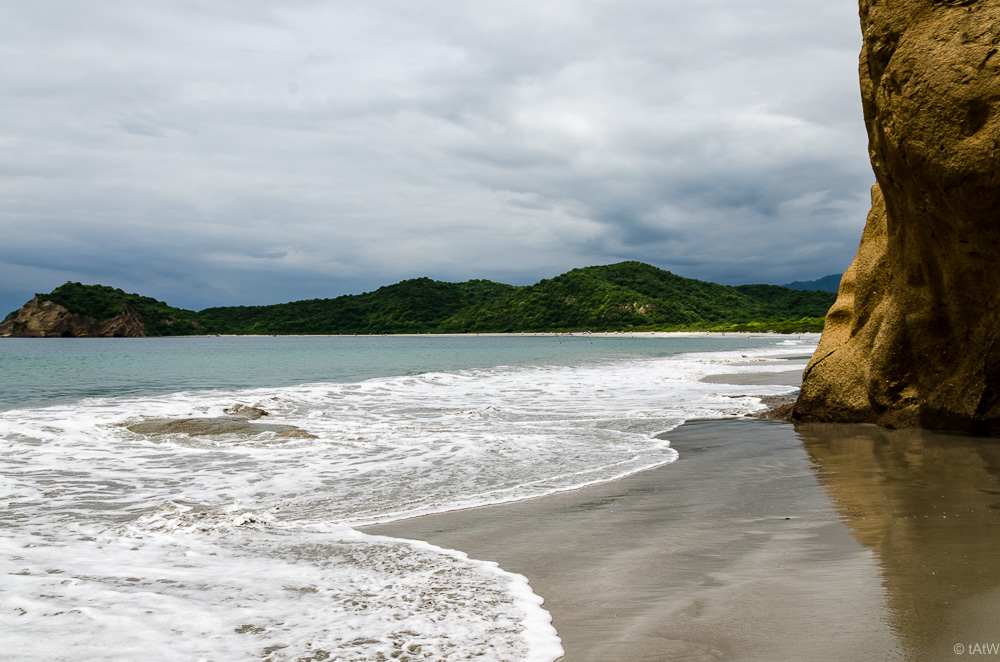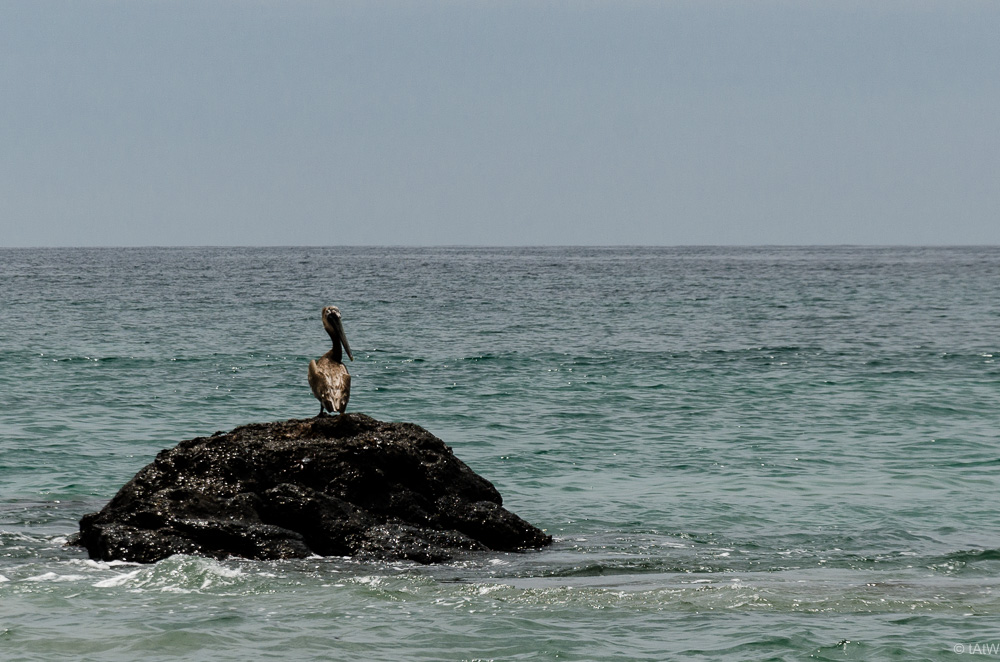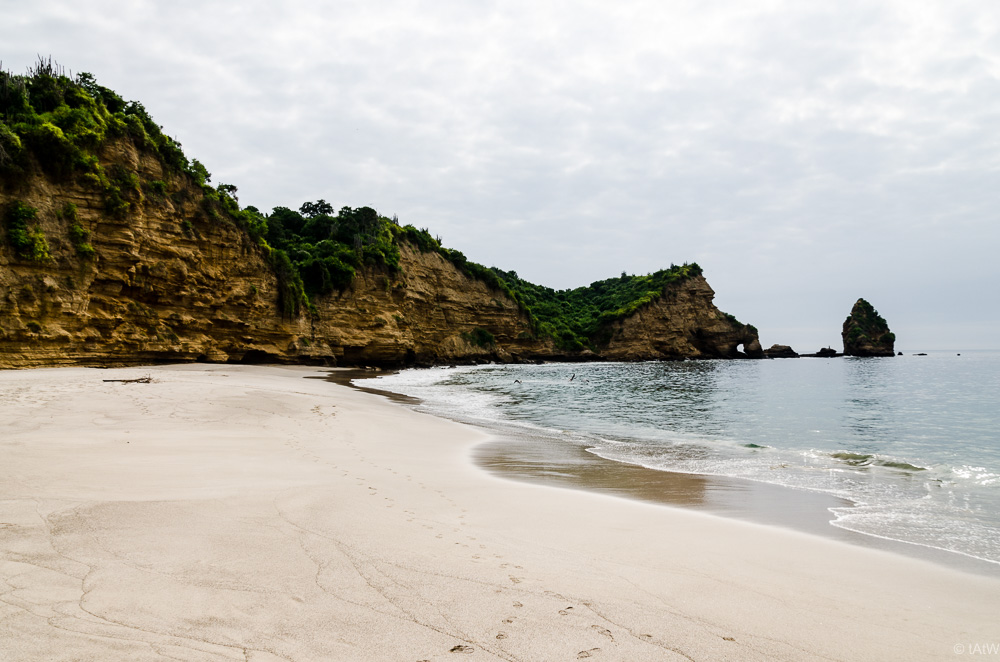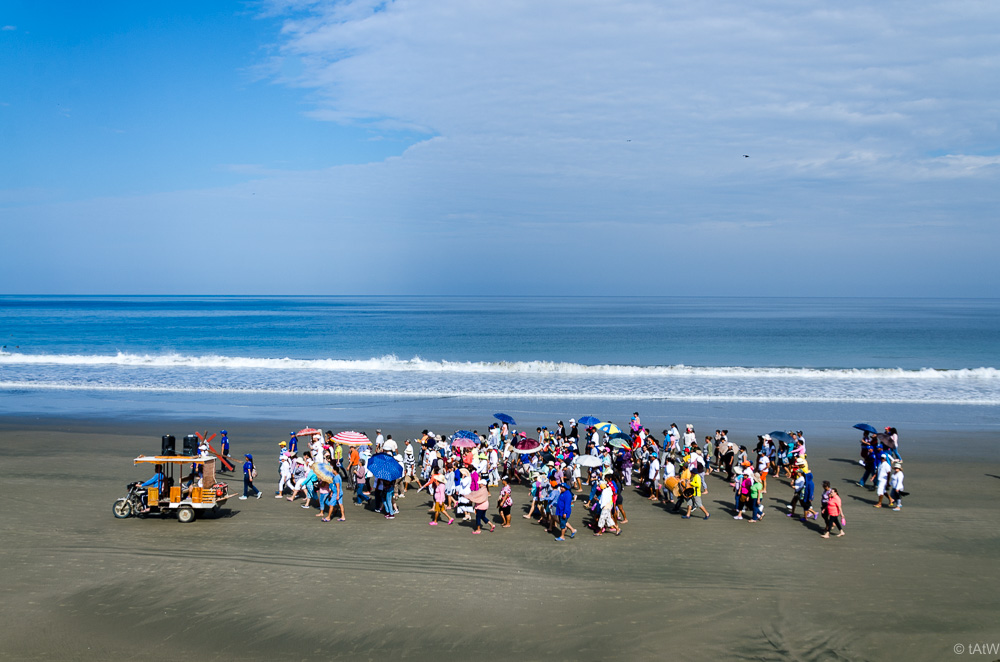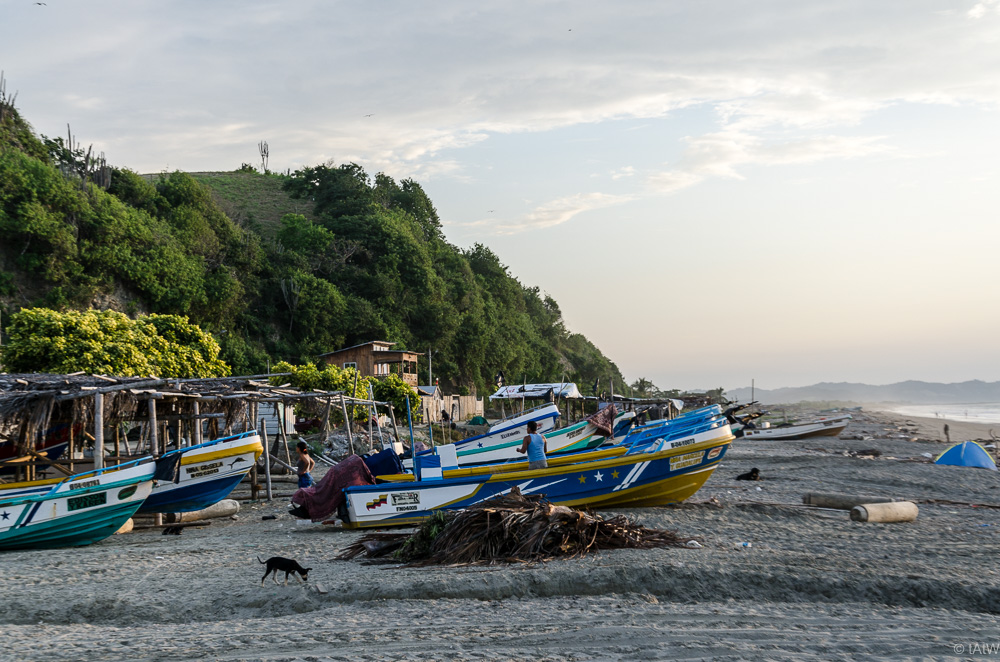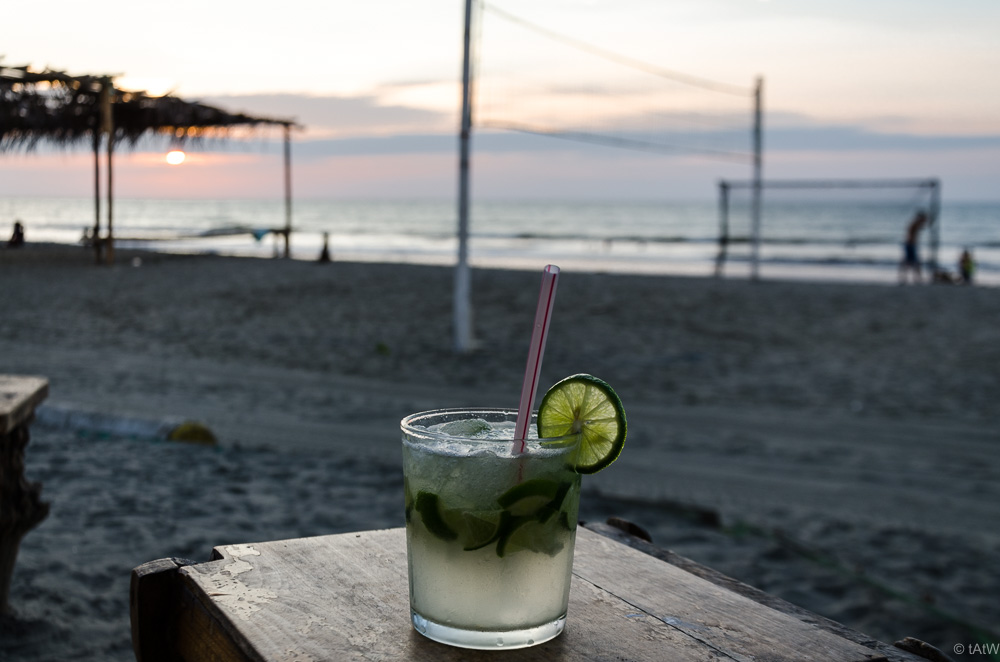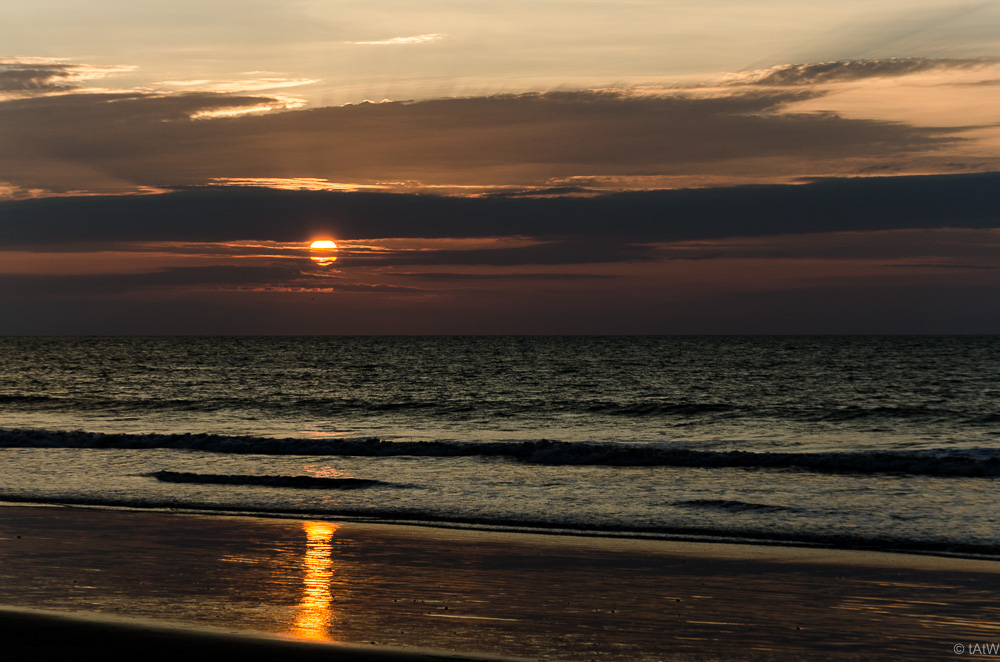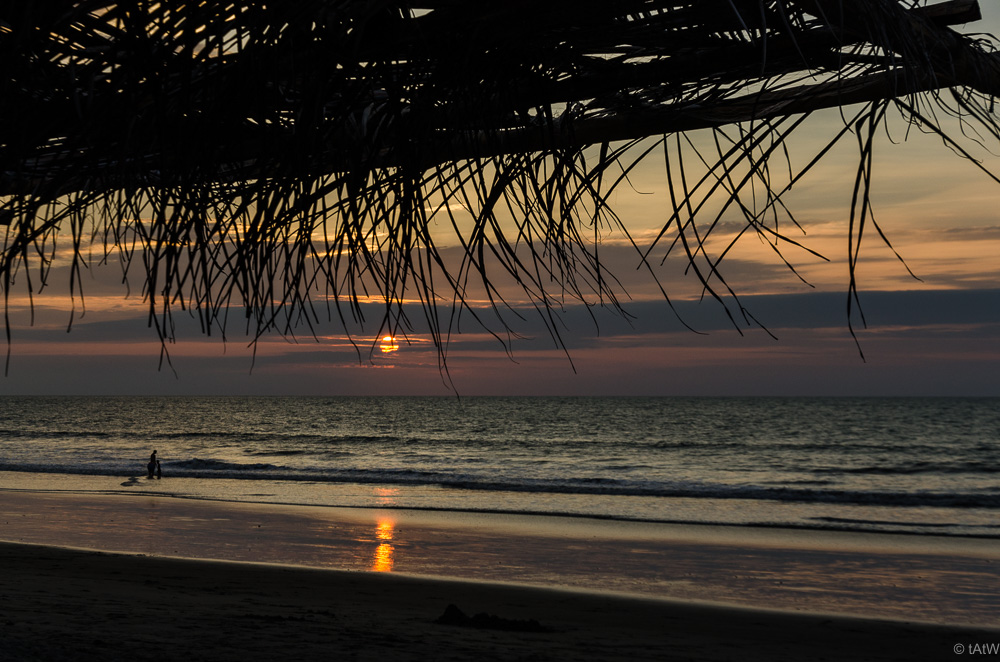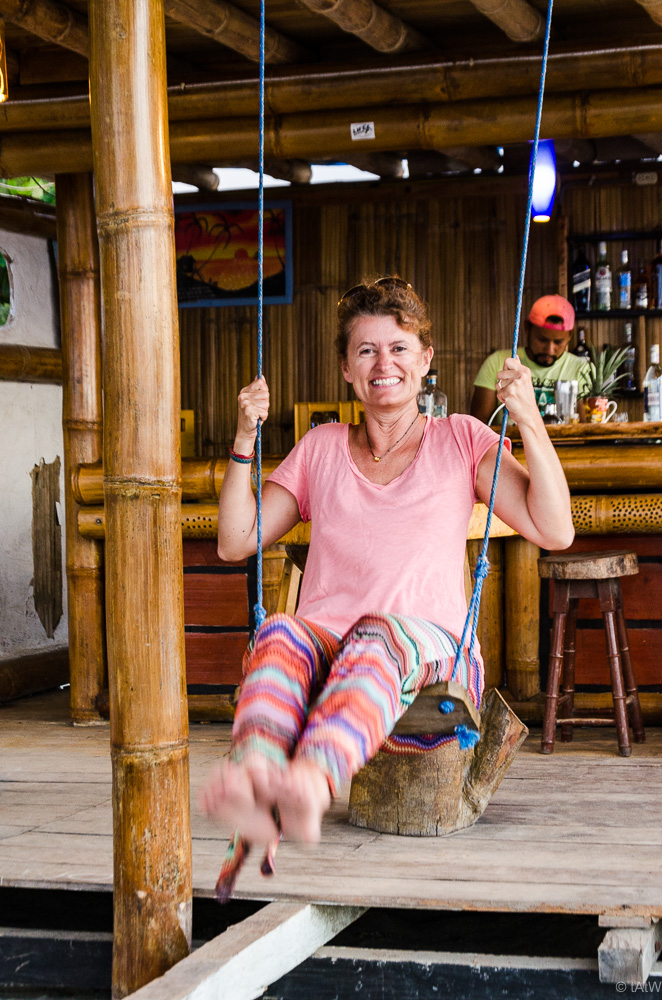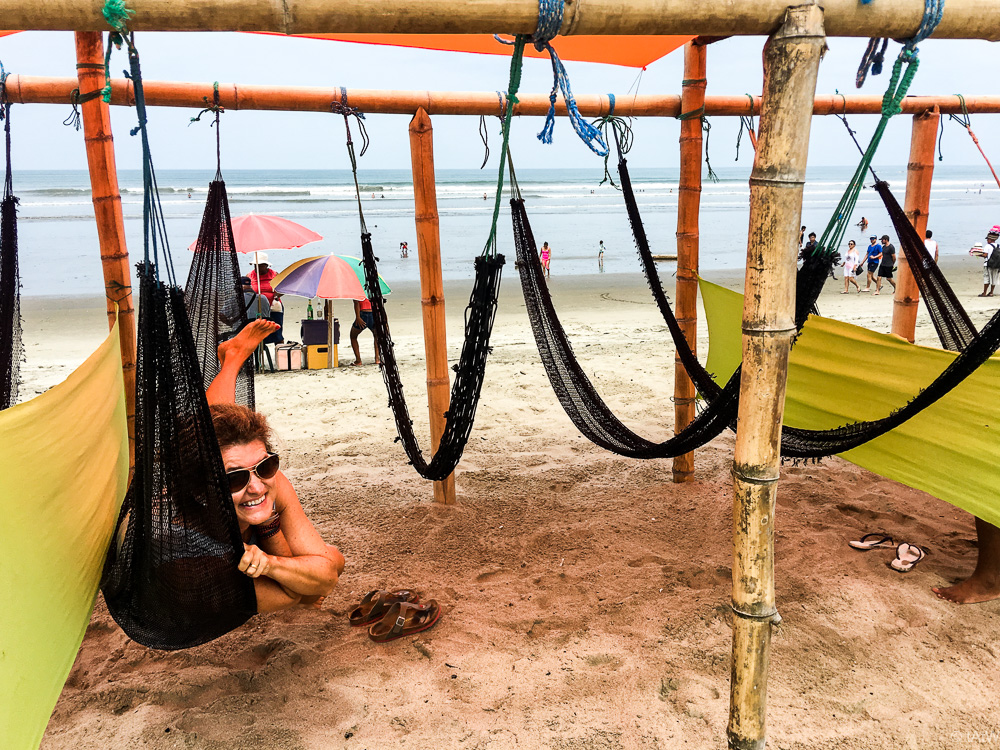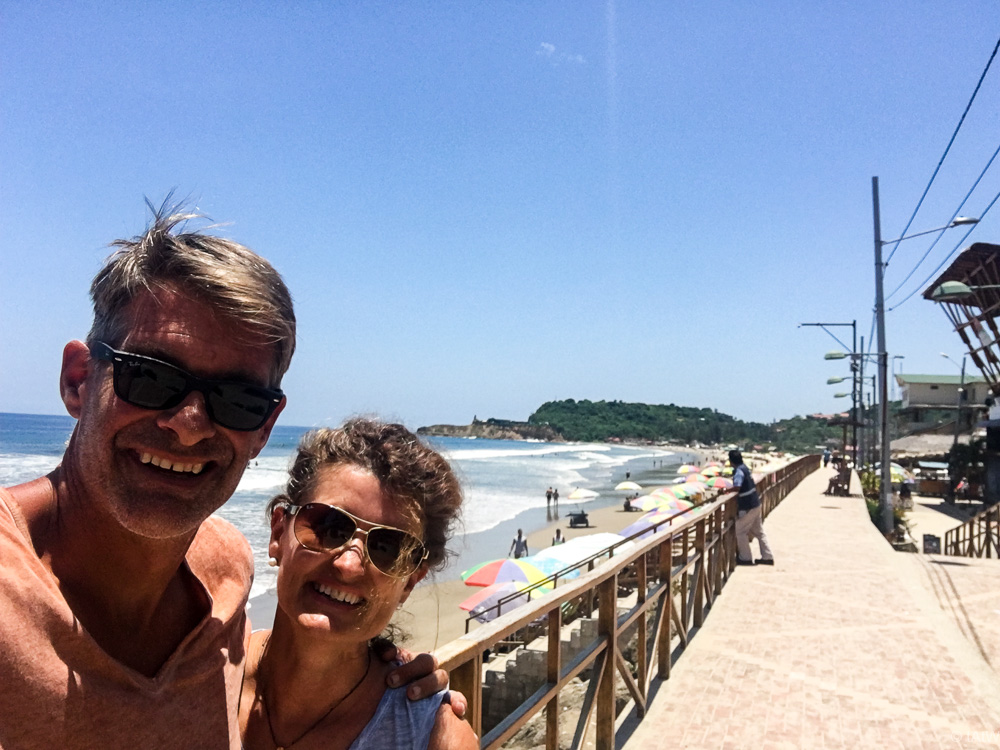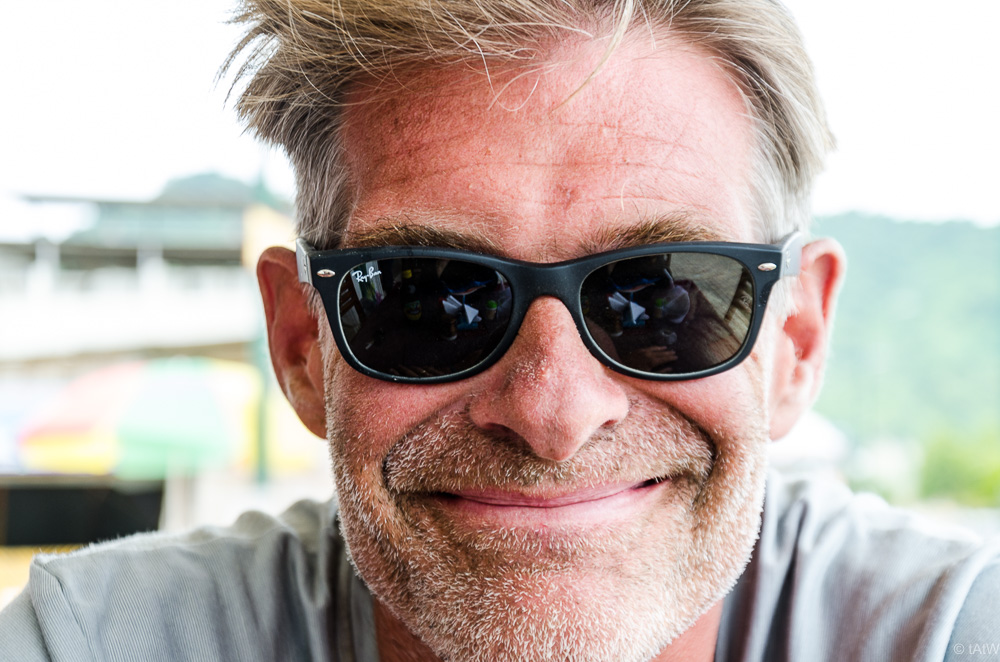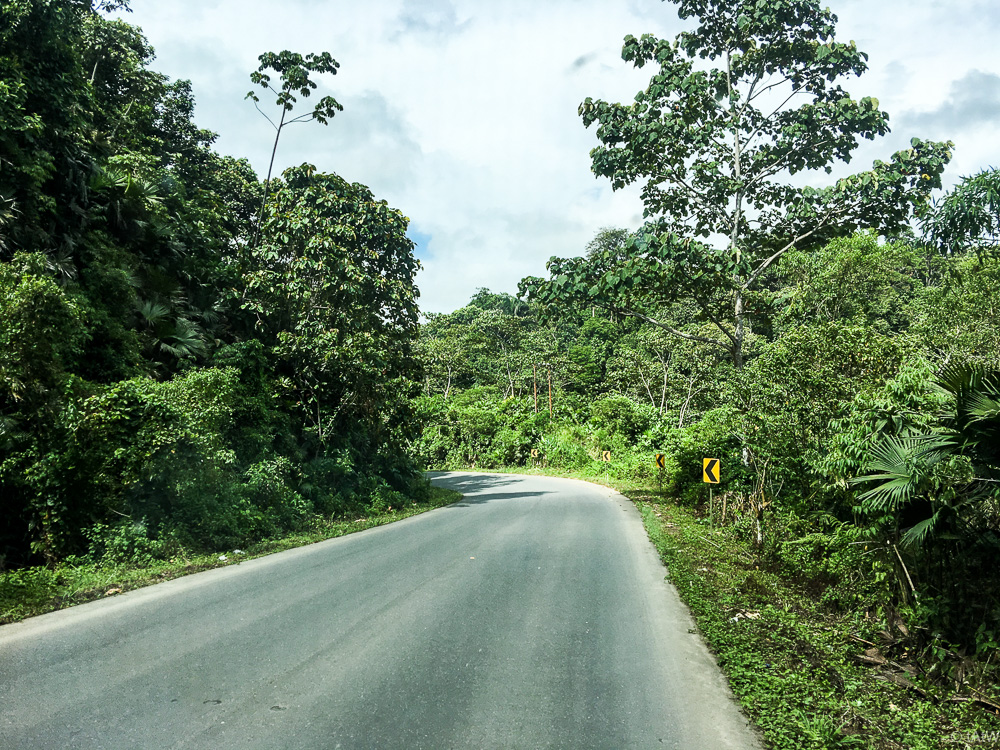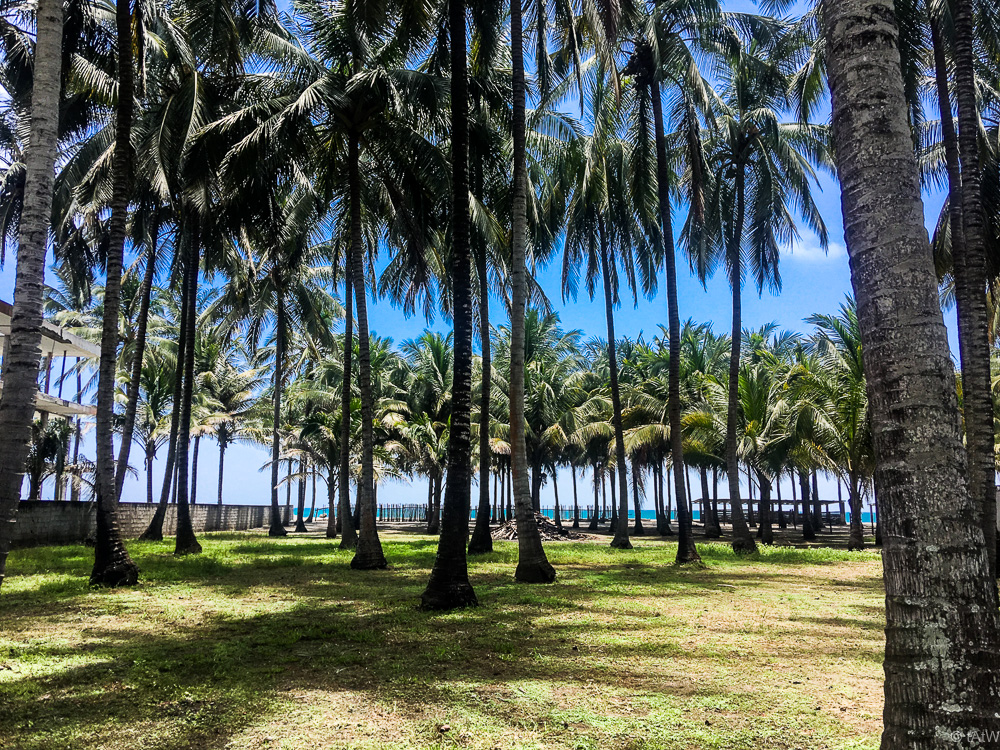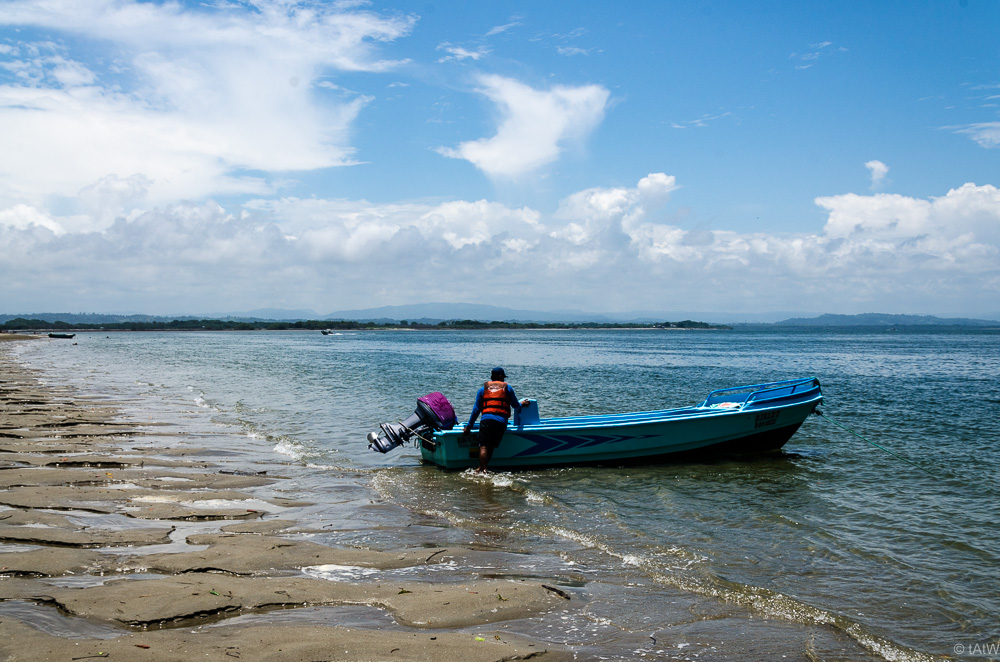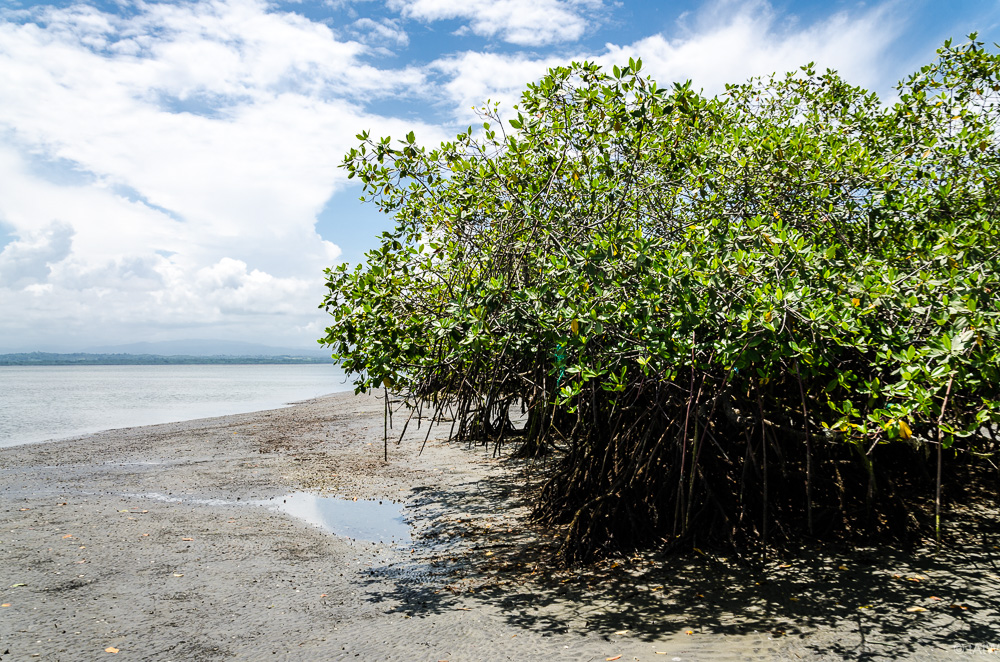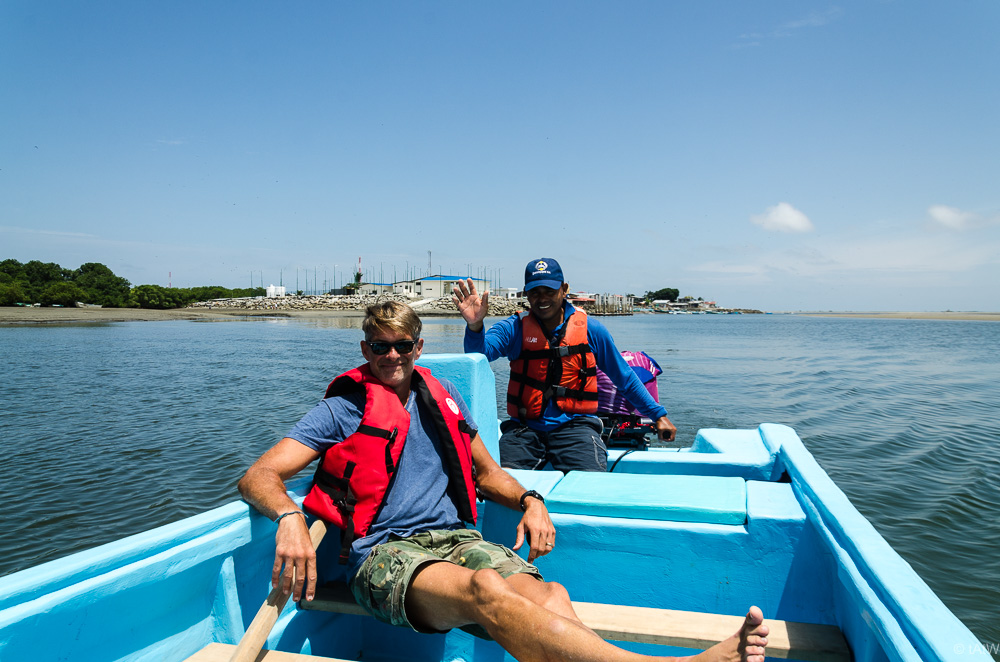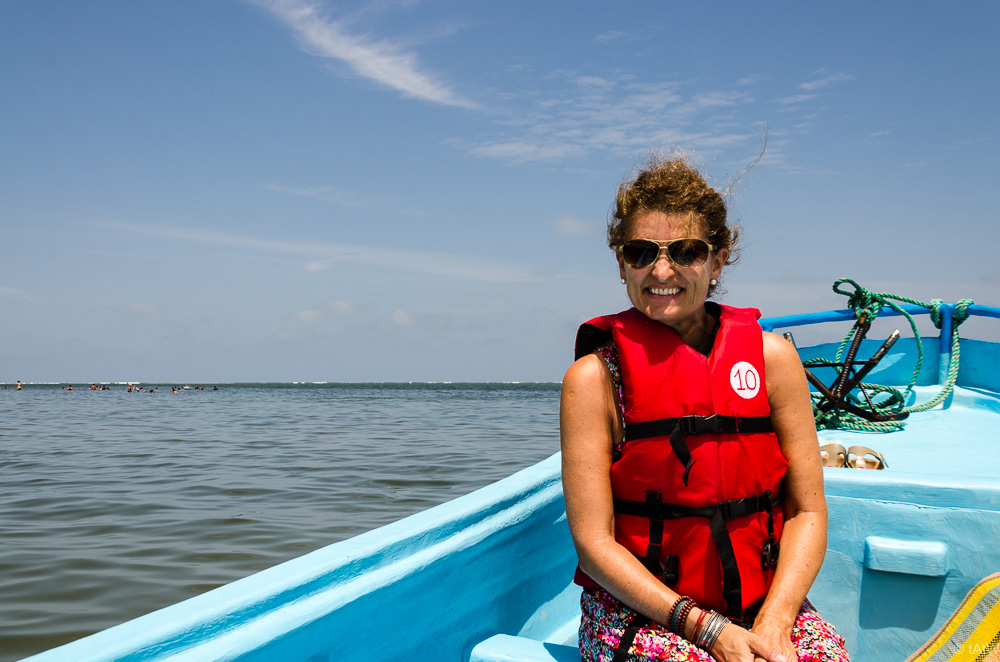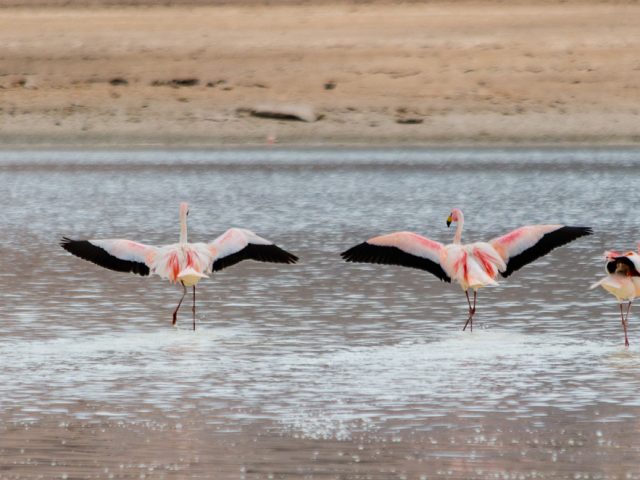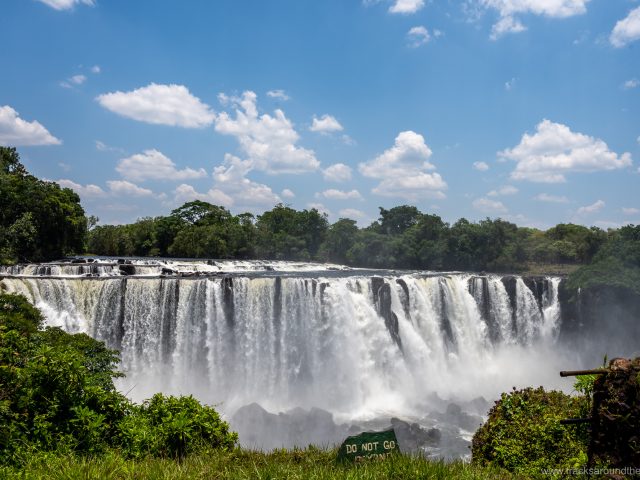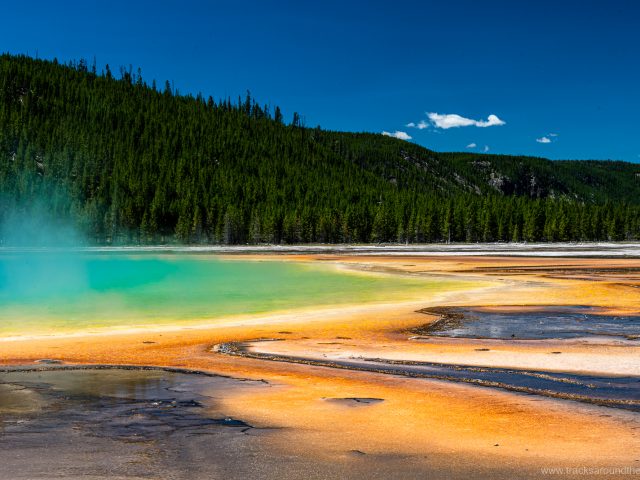After six days of vacation at the Swiss Wassi in northern Peru we drive across the border to Ecuador, again without any problems and this time without any vehicle control. Only the original documents they want to see this time.
What immediately stands out after crossing the border in comparison to Peru:
- A very tropical vegetation, including endless banana and cocoa plantations (that’s why we call Ecuador “banana republic” without it being one of course….)
- Much less waste at the roadside and a much tidier environment
- Great roads, which are very generous (not to say oversized) and often even with four lanes
- Much more relaxed and very friendly people
- The very American atmosphere. We fill up our supplies in a shopping center, which could be the same in the US: food courts, large supermarkets, secure parking, mobile operators in the entrance area and all in all a very modern, attractive atmosphere. However, even at almost American prices: since the year 2000, the US dollar is the official means of payment, which at least facilitates the conversion into our home currency.
Then we drive north along extensive wetlands and pass on the same day Guayaquil, the largest city in Ecuador with over 3 million inhabitants, which is no problem on Sunday with little traffic.
More problematic is the search for our place to stay. Finally we find a dirt road and only hope that a farmer does not want to drive by at night. A farmer does not come, but against 21.00 h it knocks very energetic and loud at the door. When I, as always for safety’s sake, first inspect the situation from the window, I look into four pistol runs. Not by bandits, but by four very nervous policemen who have cold sweat on their faces. I go out, explain our story (from Germany, on a world trip with our expedition mobile, Ecuador is a beautiful country etc.), emphasize “no somos banditos” (we are not bandits) and after the police have inspected Shujaa and our passports the situation slowly relaxes a bit. The farmer, who is not visible to us and on whose land we are, called the police out of fear of our foreign-looking expedition mobile, who in turn did not really know how to deal with this unfamiliar situation. Karin said after that, I laughed the whole time, which completely irritated her while she was completely nervous. I think I wanted to relax the situation. So it is also interesting to observe the reactions of us in unknown situations.
With all the great infrastructure in the country, one should not forget that the times of FARC are not too long past yet and there are still today in the Colombian / Ecuadorian border area different splinter groups and kidnappings. But we also learn that people around us are often more afraid of us than we are of them. After the police have talked to the farmer and the situation is clarified, we are allowed to stay for the night and drive away in the early morning without breakfast before there are further problems.
After a drive on the jungle-embraced coast, we spend the next three nights in the beautiful Hosteria Islamar of the Swiss emigrant Christian. It is beautifully located on top of a rock on a private peninsula. Although nowadays Christian invests only a little in the area and the restaurant is closed (he wants to sell the entire property but so far without success), this does not reduce the quality of our stay in any way. We make various trips to the surrounding beaches and into the backcountry with our Quad Shujoo and enjoy the spectacular views of the offshore island of Salango in front of our favorite spot: a viewing platform at the very end of the headland about 100 meters above the sea. Hundreds of pelicans fly overhead, plunging into the ocean to fish in the Pacific. A gigantic place!
After three days of further holidays we continue along the coast, which is now becoming even more jungle-like. On the way to the north we pass our first serious accident with fatalities. We’ve already wondered that we see so little when we’re so much on the road.
In Hosteria Camare, north of Jama, we will spend another two days on vacation, enjoying the tropical beach, the caipis of the nearby beach bar, and barbecuing fish directly bought by fishermen. Meanwhile, it is so hot and humid that we are grateful for our air conditioning in construction (as well as corresponding battery reserves) which operates every night.


